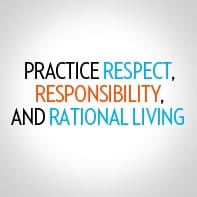There is no doubt that technology has changed the way we communicate and manage relationships. To name a few changes… Facebook has reduced the need to ask people how their day is going and share daily updates personally, online dating has reduced the need for people to approach possible mates in person, and emailing and Skype has reduced the need for face to face meetings. But the question is has all of this technology made it impossible for people to connect and develop true intimacy based on trust and respect ? In my marriage counseling sessions one partner usually feels second place to the gadget. But putting the phone down doesn’t always solve the problem. 
The answer is that it depends on how you handle your communications and how you manage your expectations of others in their communications. One of the most common errors I hear people making in using technology in their communications is when it comes to the expectations of how often and when others will respond to them.
MYTH . You think Texting is a 2 way radio communication. When someone does not respond to your text you become anxious and agitated. Eventually you might lash out or do what Jon Favreau did in the movie Swingers and just keep “texting” .
The problem with this is it pushes people away because your lack of flexibility interferes with their needs so you come across as demanding, pushy and needy. On the behavior side of this myth , you ALWAYS respond immediately to others and assume therefore others should do the same
SOLUTION: Instead adjust your expectations about how often and when people can and will get back to you. Here are some strategies on how to adjust your expectations:
1. First your attitude needs to be adjusted: Just because you send someone a text message does not mean they have the capacity, motivation or information necessary at that moment to respond to you. When you expect others to respond to your texts in this manner you set yourself up to feel annoyed and rejected by others.
2 Pay attention to the lives of others and assume that they won’t be able or willing to communicate with you during certain events (like at work, in a meeting, out a social event with friends, family, exercising, etc), If they do communicate with you during a time when they are occupied look at it as a bonus not a must.
3 Pay attention to the behavior patterns of others. If the person you are communicating with prefers to avoid using text for certain types of communication then act accordingly. I often hear clients complain that when they feel vulnerable in a relationship they will send their partner expressive then get angry when these does not go well. Instead be respectful of the person’s style of communication, this will help the person to become more expressive rather than just avoid.
4 Be Direct and Ask for a response. Instead of assuming and personalizing someone as ignoring because they are not available to get back you or will get back to you within the time frame you have established in your brain, ask them directly when you they think they can give you a response. Reserve this strategy for when you need a response by a specific deadline.
5. Be more empathetic. Not everyone wants to communicate all of the time. This speaks to motivation, just because someone is capable of communicating does not mean they are always in the mood for texting. Instead of thinking “is he/she was really into they would reach out, it only takes a second to text” try to consider that sometimes people are not in the mood to communicate, They may have other things are their mind or feel emotionally self indulgent to the point of retreating from the outside world. This can be a normal response to having so much activity and communication. Remember we as humans were not built to be texting all of the time.
6. Stop Texting and see them in person or schedule a time to chat . As an “Add on” behavior texting is acceptable, but when it’s not backed up with personal experiences such as face time or even phone talk time it can be shift quickly from positive gesture of a friend saying hello/ asking a simple question to someone bombarding you, treating you in an inauthentic manner or invading your space.
This is especially important for arguments. People say more harmful things when there is less personal contact. If you are having a hard time with someone then try connecting more personally than a faceless text.
For more information about how Cognitive Behavioral Therapy New York Ny and other psychotherapy services with Dr. Jayme Albin Clinical Psychologist in New York CIty can help manage your personal or professional relationships please contact us today Info@cbt-newyork.com or 212-631-1133 you can also sign up for our blog at www.AsktheCBT.com
















